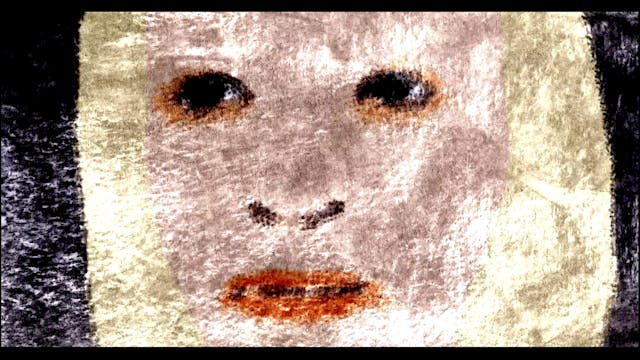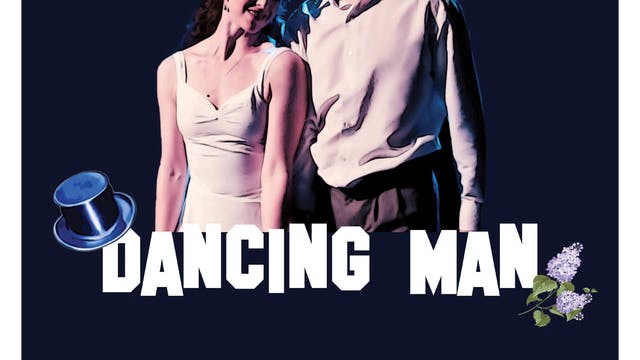MELODIA short film, Experimental/Dance/Music Festival review (interview)
FESTIVAL AUDIENCE FEEDBACK VIDEOS
•
5m 51s
Melodia: a short film in rondo form, 9min., Taiwan
Directed by A T Beaune
A rendezvous in Taiwan’s capital city. A musician gives voice to the day as contrasting lives intersect.
https://linktr.ee/melodia.shortfilm
https://facebook.com/melodia.shortfilm
https://instagram.com/melodia.shortfilm
Get to know the filmmaker:
What motivated you to make this film?
I love music and people who make it. In this case, the music is by a 27-year-old composer embarking on a promising career. With his 250th birthday year coming up, I wondered how it might work to render a musical story visually.
That music is now a feature of Taiwan society. The 27-year-old composer has gone native. The music is no longer an import. It’s as Taiwanese now as boba tea. The word Melodia is from the same language as Formosa, another offshore invention that went native here long ago.
Rondo forms by nature are repetitious. We get a main theme, then get regularly bounced out of that into contrasting episodes—yet the main theme always bounces back. The composer knew, though, that ultimately there’s no such thing as repetition. No one steps into the same river twice, right? It’s not the same river and we are not the same person. That reality is reflected in the music and in the film.
In the character of Mel, Yi-An Chen and I hoped to suggest the subjective experience of performers. Everyone knows what concerts look like. But what does one feel like? When you’re surrounded by all those people out there and it’s your fingertips on the Bösendorfer?
Newcomers to concert music often speak of it as ‘putting on’ things and ‘pretending’ things. They hear with their eyes. The performer’s reality is a bit different. Dancers and actors can relate to this, I’m sure.
In the film the Taipei urbanites initially stand out by contrast. How the tension between the two worlds resolves is the story of the music and the film.
In wide shot, of course, Mel is also one of the urbanites. As is Ludwig, in a way.
From the idea to the finished product, how long did it take for you to make this film?
Aiyo. Too long. About three years altogether, I think.
In 2018 I completed a draft of the screenplay and asked Yi-An Chen about acting in the film. Our goal was to release in 2020, the 250th anniversary year. The coronavirus had other plans, of course. Anniversary concerts around the world were cancelled and we put our film plans on ice.
We resumed work in summer 2021—which was actually the roughest year in Taiwan for the pandemic. Our team became complete when Laticia Fan agreed to be director of photography. We now had experienced camera operators, with Elaine Lai as line producer and Tom Chen as gaffer. The locations were the last thing to fall into place. During the pandemic it was difficult to get into any place at all to shoot.
Once preparations resumed, we found that our experiences with lockdown affected our personal responses to the scenes we were filming. The dinner shoot felt more like we were acting out a dream than showing a real activity that people engaged in any more. The windows reminded me of the way we had all been maintaining human connection through glass. Same images, new meanings. We never step into the same river twice.
We released Melodia on the composer’s 252nd birthday. There’s another anniversary in 2027. At least we’re early for that one!
How would you describe your film in two words?
Oh, my. The music says adagio cantabile at the top left corner. Can we can go with that?
What was the biggest obstacle you faced in completing this film?
The top challenge was posed by the music itself. We would be dancing phrase-to-shot with some of the most memorable music ever written. It takes time to find collaborators who feel that challenge personally and welcome a chance to rise to it. I’m so glad the film found them.
To give you an idea of the music’s place in Taiwan society that we had four different people on set at one point or another who could play the music from memory.
When I approached Laticia Fan with the Melodia script, she never once even leaned back in her chair. She looked over the script, asked a few questions, and said ‘OK. Can we start in two weeks?’ Pow—we were off. Laticia Fan is here to make films, not talk about making films. Lash Fan is here to light fires.
The biggest practical challenge was securing permission from the city to shoot in all the locations we did. The expectations are reasonable but the volume of administrative tasks gave our line producer, line assistant, and me all we could handle.
Taiwan is the first county in Asia to recognise same-sex marriage and we are proud of this. I wanted to represent this aspect of Taiwan culture in the film, as I had already done in a stage work. I wasn’t able to get every actor I had wanted for the one-day shoot, though, and after exploring a couple of fall-back options I had to let the idea go.
What were your initial reactions when watching the audience talking about your film in the feedback video?
I felt understood and appreciated! I wished I could be with all these people in person. What fun we could have, watching a lot of films together and talking about them!
These viewers could have done anything with that time but they spent it with us. That’s both humbling and gratifying, as all of us on the team felt a big responsibility to viewers. I’m delighted they felt their time was well spent.
When did you realize that you wanted to make films?
I was a professional musician who frequented indie cinemas. Two filmmakers inspired me to consider exploring the medium myself. Tran Anh Hung and Krzysztof Kieślowski are both poets of the camera. And both are great collaborators. It’s ensemble work, isn’t it? If I started telling stories in this new medium, while I’d have no end of new things to learn, I wouldn’t be starting from scratch, either.
What film have you seen the most in your life?
High in count are the trilogies by Tran Anh Hung and Krzysztof Kieślowski. The film I have viewed most often, though, is probably Le Violon Rouge (The Red Violin, 1998) by François Girard. Another rondo!
The three short films I have viewed most often would be Liebestod (1987) by Franc Roddam, Loin du 16e (2006) by Walter Salles and Daniela Thomas, and 14e arrondissement, (2006) by Alexander Payne.
What other elements of the festival experience can we and other festivals implement to satisfy you and help you further your filmmaking career?
It’s wonderful that you are asking this. The response video is already a fantastic idea. What the public looks for is independent validation of new things. They want to see someone they can relate to vouch for it—a reviewer, a neighbour, whoever they relate to. So ideas like this are enormously helpful. As Anton Ego says in Ratatouille, ‘the new needs friends.’
I am still considering this question. Distribution is a big question for me right now. I am new to that part of things and for me it still holds many mysteries.
You submitted to the festival via FilmFreeway. How has your experiences been working on the festival platform site?
How did festival submission happen before Film Freeway? The site filled a gaping need. Having a central hub makes it so much easier for films and audiences to find each other. Film Freeway is a breeze for filmmakers. I would be very interested in knowing how festival planners feel about their side of it.
What is your favourite meal?
One of the standout meals I have ever experienced is a banana smoothie in a plastic cup that I shared in a hospital with a dying lover.
Any tasty meal enjoyed in good company is a banquet, I’d say.
What is next for you? A new film?
My Taiwanese friends and I are talking about new projects. Meanwhile, I’ve lost my mind enough to start writing a feature film screenplay and a television series outline.
Thank you for your friendly interest! I’ve enjoyed our interview. Laticia Fan, Yi-An Chen, Chung Hua Weng and all of us appreciate the warm welcome this festival has given to Taiwan and to Melodia. The new needs friends. We are humbled and honoured and will never forget it.
Up Next in FESTIVAL AUDIENCE FEEDBACK VIDEOS
-
QUAKENBRUCK short film, Experimental/...
QUAKENBRUCK, 11min., USA
Directed by Laura Harrison, Lilli Carre
Quakenbruck is a collaboration conceived by Laura Harrison and Lilli Carre. The Frankenstein of their efforts is a sci fi liberation. A woman enters an MRI. Her doctor tells her what to expect, but neither can anticipate how the m... -
GUARDIANS OF THE FLAME short film, Ex...
GUARDIANS OF THE FLAME, 70min., USA
Directed by Daniel Wolff
Undeterred by decades of prejudice, post-Katrina neglect, and ongoing appropriation of their traditions, three generations of the extraordinary, multi-talented Harrison family guard their legacy and define what Black masking culture mea... -
DANCING MAN short film, Experimental/...
DANCING MAN, 23min., USA
Directed by Robert Steven Mack, Clarisse Gamblin
David, a young and quixotic dancer, is confronted with the decision of whether to stay at a Midwestern ballet company with his new love interest Gabrielle or follow a promising choreographer to New York to chase his pipe dr...


